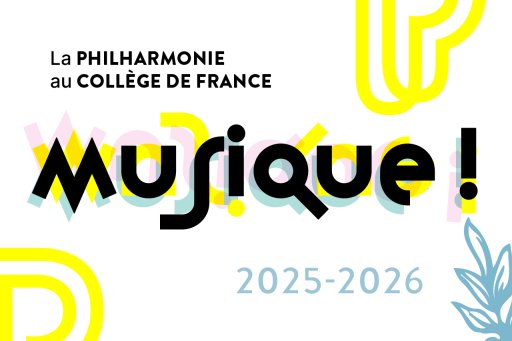
At the Collège de France's "Migrations, réfugiés, exil" symposium, Thierry Mandon, Secretary of State for Higher Education and Research, announced on October 13, 2016 the launch of a program to welcome scientists at risk.
Working with higher education establishments and organizations, in partnership with companies and civil society players, this program will also be supported by a sponsorship committee, whose creation Thierry Mandon has entrusted to Edith Heard and Alain Prochiantz, professors at the Collège de France.
In an article published on Le Point.fr, the first members of the Comité de Parrainage explain the reasons for their commitment.
France can welcome scientists in danger!
The phenomenon commonly referred to as the "refugee crisis" that Europe is currently experiencing, and which is undoubtedly above all a crisis of Europe and its values, cannot leave the academic world indifferent. While a number of initiatives have already highlighted the value of research into these migratory flows, it is also necessary to pay attention to the migrants themselves. Many of them - particularly those from Syria - are university graduates, or even researchers or teacher-researchers. Initiatives have already been taken to open up access to higher education for young refugees or asylum seekers whose studies have been prevented or interrupted. But the reception of researchers and teacher-researchers remains a weak link in the actions taken to date in France. The only structured initiatives have been at the instigation of scientific communities specialized in the geographical areas affected (specialists in Syria or, more generally, the Middle East, particularly in archaeology and ancient studies), most often by releasing non-permanent budgets from existing research credits to finance research and the reception of these colleagues. Solidarity with researchers in exile is not only a necessary gesture of solidarity with colleagues in danger, but also a resource for knowledge and learning. Stanford economist Petra Moser has shown that one of the consequences of welcoming over 133,000 German-Jewish emigrants to the USA between 1933 and 1944, many of whom were highly educated, was a 31% increase in patent applications in the USA. The project to welcome researchers in exile should therefore be seen as an opportunity not only for them, but also for France. It is first and foremost a moral duty, but one whose consequences can be rich from a scientific point of view.
Faced with this situation, it appears that solutions have been implemented in other Western countries: from"Scholars at Risk", currently hosted by New York University, to the Philipp Weitzmann initiative created by the Humboldt Foundation (Germany), via Cara ("The Council for at Risk Academics") in Great Britain, or the Scholars Rescue Fund, programs have been set up, sometimes reactivating mechanisms created in the first half of the twentieth century, to welcome and integrate scientists. It is important for France to live up to the challenges of the present and to its status as a great research nation, by creating a reception system for researchers at risk. This will not only be a source of human and scientific enrichment in the short term, but will also anticipate the social and academic reconstruction of these countries in the future. The sciences - exact sciences, life sciences, human and social sciences - can be a response to obscurantism. Encouraging their development is one of the strongest signs of societies confident in their values and their future, and unafraid of free spirits. This is why we must support threatened academics, welcome them into our midst, and contribute together to strengthening the scientific knowledge the world needs.
On October 13, during the opening symposium at the Collège de France on "Migrations, réfugiés, exil", Secretary of State Thierry Mandon announced the creation of a national program to help scientists in danger. We would like to support the birth of this program, by forming the sponsorship committee for this necessary initiative.
Edith Heard and Alain Prochiantz (Collège de France) - Co-Presidents
First signatories:
Michel Agier (IRD/EHESS), Suzanne Berger (MIT), Patrick Boucheron (Collège de France), Hamit Bozarslan (EHESS), Édouard Brezin (Académie des Sciences), Claude Cohen-Tanoudji (Collège de France, Nobel Prize in Physics), Pascale Cossart (Institut Pasteur), Chantal Crouse (gallery owner), Jean-François Delfraissy (Inserm), Jean Jacques Glassner (Honorary Research Director, CNRS), Virginie Guiraudon (Sciences Po), Béatrice Hibou (Sciences Po), Jules Hoffmann (University of Strasbourg, Nobel Prize in Medicine and Physiology), Jean-Jacques Hublin (Collège de France), Eberhard Kienle (IFPO), Liora Israël (EHESS), Camille Laurens (writer), Henri Laurens (Collège de France), Marie-Claire Lavabre (CNRS), Dominique Maraninchi (AMU), Jennifer Merchant (Paris 2), Pap Ndiaye (Sciences Po), Marcel Rufo (AMU), Dominique Schnapper (EHESS), Dominique Stoppa-Lyonnet (Paris Descartes/Institut Curie), Gisèle Sapiro (EHESS), Lilian Thuram (sportsman), Antoine Triller (Collège de France), François Villeneuve (Paris 1), Sophie Wauquier (Paris VIII), Sébastien Balibar, (Membre de l'Academie des Sciences - Laboratoire Pierre AIgrain, Ecole Normale Supérieure), Jean-Luc Morel (Institut des Maladies Neurodégénératives, UMR 5293 CNRS-Université de Bordeaux).
Thank you for your support!
Contact for signatories:








